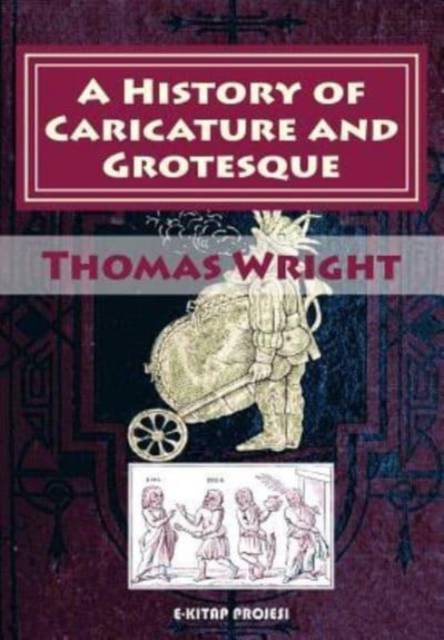
- Afhalen na 1 uur in een winkel met voorraad
- Gratis thuislevering in België vanaf € 30
- Ruim aanbod met 7 miljoen producten
- Afhalen na 1 uur in een winkel met voorraad
- Gratis thuislevering in België vanaf € 30
- Ruim aanbod met 7 miljoen producten
Zoeken
A History of Caricature and Grotesque
[Illustrated & In Literature and Art]
Thomas Wright
Paperback | Engels
€ 52,45
+ 104 punten
Omschrijving
I have felt some difficulty in selecting a title for the contents of the following pages, in which it was, in fact, my design to give, as far as may be done within such moderate limits, and in as popular a manner as such information can easily be imparted, a general view of the History of Comic Literature and Art. Yet the word comic seems to me hardly to express all the parts of the subject which I have sought to bring together in my book. Moreover, the field of this history is very large, and, though I have only taken as my theme one part of it, it was necessary to circumscribe even that, in some degree; and my plan, therefore, is to follow it chiefly through those branches which have contributed most towards the formation of modern comic and satiric literature and art in our own island.Thus, as the comic literature of the middle ages to a very great extent, and comic art in a considerable degree also, were founded upon, or rather arose out of, those of the Romans which had preceded them, it seemed desirable to give a comprehensive history of this branch of literature and art as it was cultivated among the peoples of antiquity. Literature and art in the middle ages presented a certain unity of general character, arising, probably, from the uniformity of the influence of the Roman element of society, modified only by its lower degree of intensity at a greater distance from the centre, and by secondary causes attendant upon it. To understand the literature of any one country in Western Europe, especially during what we may term the feudal period-and the remark applies to art equally-it is necessary to make ourselves acquainted with the whole history of literature in Western Europe during that time. The peculiarities in different countries naturally became more marked in the progress of society, and more strongly individualised; but it was not till towards the close of the feudal period that the literature of each of these different countries was becoming more entirely its own. At that period the plan I have formed restricts itself, according to the view stated above. Thus, the satirical literature of the Reformation and pictorial caricature had their cradle in Germany, and, in the earlier half of the sixteenth century, carried their influence largely into France and England; but from that time any influence of German literature on these two countries ceases. Modern satirical literature has its models in France during the sixteenth century, and the direct influence of this literature in France upon English literature continued during that and the succeeding century, but no further. Political caricature rose to importance in France in the sixteenth century, and was transplanted to Holland in the seventeenth century, and until the beginning of the eighteenth century England owed its caricature, indirectly or directly, to the French and the Dutch; but after that time a purely English school of caricature was formed, which was entirely independent of Continental caricaturists.
Specificaties
Betrokkenen
- Auteur(s):
- Illustrator(s):
- Uitgeverij:
Inhoud
- Aantal bladzijden:
- 598
- Taal:
- Engels
Eigenschappen
- Productcode (EAN):
- 9781508855293
- Verschijningsdatum:
- 13/03/2015
- Uitvoering:
- Paperback
- Formaat:
- Trade paperback (VS)
- Afmetingen:
- 170 mm x 244 mm
- Gewicht:
- 940 g

Alleen bij Standaard Boekhandel
+ 104 punten op je klantenkaart van Standaard Boekhandel
Beoordelingen
We publiceren alleen reviews die voldoen aan de voorwaarden voor reviews. Bekijk onze voorwaarden voor reviews.











